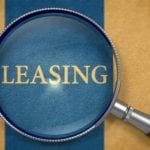Are You Considering Entering Into A New Commercial Lease?
If you operate a business it is likely that you require commercial space. If you aren’t in a position to purchase your commercial space you will need to lease space from a commercial landlord. Protect yourself by knowing these commercial lease key clauses you must review and understand.
Commercial lease agreements can be very lengthy and complex. They are very different, in their terms, from a residential tenancy. It is critical that you have a lawyer who is trained in commercial leasing to review your lease to ensure that it properly reflects your needs and understanding. Also, there are a number of commercial lease key clauses that you should pay particular attention to in your review. On top of specific commercial lease terms and clauses, there are basic lease considerations to think about before signing.
A Caution About An Offer To Lease!
An offer to lease is often the first step in the leasing process that a landlord presents to the tenant. The offer to lease will set out the very basic terms of the lease (cost, space, term) but will have a clause that states that the tenant agrees to sign the landlord’s standard commercial lease agreement. By signing an offer to lease, you will bind yourself to the commercial lease key clauses without ever seeing them. This happens because while you do see the offer to lease, at times the actual lease is not provided. It is essential to have a lawyer review the lease before signing an offer to lease.
The Clauses That You Should Pay Attention To In Your Commercial Lease
In the simplest terms, the commercial lease key clauses to review in Alberta are those that involve money. Essentially those clauses that will cost you money, either because you will be responsible for certain hidden payments, or you will be unable to use the premises for certain purposes that will prevent you from earning money. These are some of the key things to pay attention to but it is important to note that these are not all of them. Many leases have terms that are discrete, hidden or not shown under an obvious heading which can be extremely costly to the tenant.
Leasing the Right Place
It is important to ensure that the legal description, and municipal address of the “leased premises” are correctly noted in the lease agreement. There are often problems regarding which space is being leased. Due to the wrong building being noted in the lease agreement or the wrong bay inside the building.
How Many “Nets” are in the Lease
What type of lease is it? For example if your lease is a “triple net” lease. This means that you are agreeing to pay all real estate taxes, building insurance and maintenance on the property in addition to the normal fees that you would incur pursuant to the lease (such as rent, utilities, etc.). Also, you will be responsible for a pro-rata share of common area expenses (such as snow removal, lawn care, repair and maintenance). This is a key clause that will determine what you are obligated to pay on an annual basis.
Cap and Rent Increases
You will want to ensure that there is a cap on rent increases for the term of the lease? There may be terms in the commercial lease that will automatically increase your rent. Some of these clauses will be specific as to how much and when a specific increase will be. Some are triggered while some may be tied to less obvious indicators which will trigger an increase without a specific amount being set out in the commercial lease.
Operating Costs
Is there a cap on operating costs (additional rent) increases during the term of the lease, and have you seen historical data verifying that the estimated cost is a true reflection of the actual costs? In some cases, the operating costs actually far are more than the rent. If there is no limit, then the expenses may shoot up with inflation, the landlord deciding to provide different services, the landlord deciding to use a different service provider, the management company increasing their “reasonable” fees, etc. It is also important to note that if you do not have a well estimated monthly allocation of operating costs, you may be hit with a huge surprise bill for them at the end of the year when an annual operating cost reconciliation is completed.
Who is Responsible For What
Is the schedule for landlord work, or tenant work, to be done prior to taking possession correctly described and clear? This will lay out not only who has to do what but who has to pay for what. Many of the landlord and tenant work terms also have penalties for failing to perform them. This may be considered a default on the lease and\or may have a financial penalty to the tenant. The landlord may even be able to solely determine how much work and the standard to which it must be completed… at the tenant’s sole expense.
Assignment of Lease
Does a request to assign the lease allow the landlord to terminate the lease? If your business is not going as you had expected, the best way to deal with the financial obligations in the lease is to assign it to another tenant. This means that someone else will take over the lease for you. The assignment of lease clause in commercial leases often allow the landlord to terminate the lease based on the default clauses contained in the commercial lease which may include costly terms for your business. If you entered into a personal guarantee, this could make you personally liable for and debts owing to the landlord. Of all commercial lease key clauses, this one can be most problematic when your business is already suffering. Most landlords also charge a significant fee for allowing you to assign the lease or sublet the space to another tenant.
Continue To Part II In For Commercial Lease Key Clauses / Terms
There are an additional 7 commercial lease key clauses that are discussed in part two of the series. These additional leases terms are not less important or less problematic for tenants. The split is simply for information management. In addition, the part II page has information on personal liability under commercial leases. The commercial lease lawyers at Kahane Law Office in Calgary, Alberta are happy to assist in your lease reviews or, where needed, commercial lease drafting. We can be reached toll-free at 1-877-225-8817 (or 403-225-8810 locally in Calgary, Alberta), or email us directly here.


